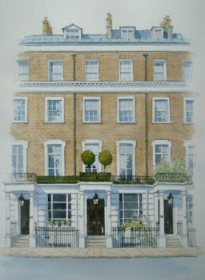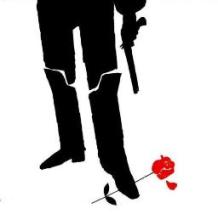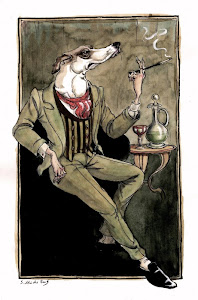 'Lieutenant Colonel Paul Emil von Lettow-Vorbeck was every inch the Prussian officer that day he stepped off the German mail steamer in Dar es Salaam harbor and prepared to call on his superior officer, Governor Dr. Heinrich Schnee. He was in civilian clothing, but a military man would have recognized him immediately from his bearing. His hair was cropped short in the Prussian manner and his brown skin lay close against the bones of his face. His blue eyes sparkled as he smiled, but an observer would also get the impression that his baritone voice could be raised in military German that would give goosepimples to an erring soldier. He was the archetype of the Junker officer. There was no wonder about that phenomenon; his father had been a German general and he expected to be a general himself, quite soon if the world situation continued to be as shaky as it had been in the last two years.'
'Lieutenant Colonel Paul Emil von Lettow-Vorbeck was every inch the Prussian officer that day he stepped off the German mail steamer in Dar es Salaam harbor and prepared to call on his superior officer, Governor Dr. Heinrich Schnee. He was in civilian clothing, but a military man would have recognized him immediately from his bearing. His hair was cropped short in the Prussian manner and his brown skin lay close against the bones of his face. His blue eyes sparkled as he smiled, but an observer would also get the impression that his baritone voice could be raised in military German that would give goosepimples to an erring soldier. He was the archetype of the Junker officer. There was no wonder about that phenomenon; his father had been a German general and he expected to be a general himself, quite soon if the world situation continued to be as shaky as it had been in the last two years.' Guerilla: Colonel von Lettow-Vorbeck and Germany's East African Empire, Edwin P. Hoyt (1981)





















5 comments:
This is how I picture my grand-children describing myself in the future.
He was an outstanding officer in an era when the German Officer Corps was the best of the best, probably the best in history.
Look at the modern armies of the West, and weep.
At school in Northern Rhodesia in 1960 we were taught about vL-V's exploits, the only German commander to set foot on British empire territory. What we were not told was that he was the still alive.
As I recall the only German general who was not defeated by the good guys.
They had a triumphal parade for him upon his return to Berlin after the war.
An omen was that he was marginalized by the "new people" in the early 30s as part of the professional officer corps.
We saw how THAT turned out.
ML
PS. I've been drinking. So all or part of the above may just be wrong.
The greatest one. After many years he returned to Africa, meeting some of his old soldiers, who stood in perfectly aligned rows.
Post a Comment